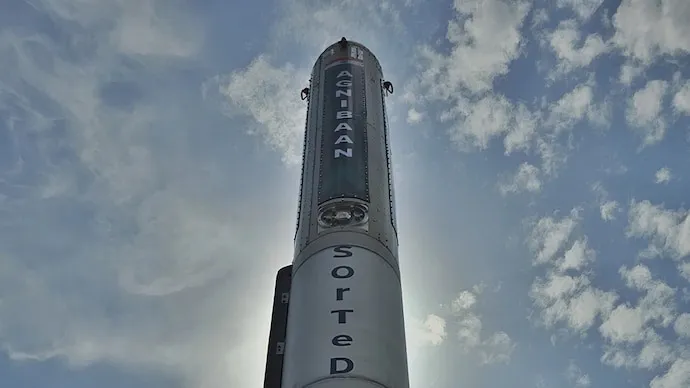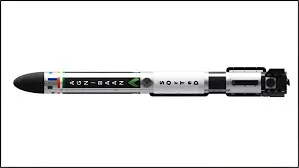India marked a historic milestone in the space sector on Thursday with the successful launch from a private launchpad of the country’s second privately built rocket. The Chennai-based space startup Agnikul Cosmos launched its single-stage technology demonstrator rocket, Agnibaan SOrTeD, at 7:15 am from Sriharikota. This launch is notable for several reasons, including its use of a combination of gas and liquid fuel and the world’s first single-piece 3D printed engine, designed and built indigenously.

Agnikul Cosmos’ achievement comes on the heels of a canceled test flight on Tuesday, which was aborted just seconds before launch. This was the fourth such cancellation in three months. Despite these setbacks, the successful launch is a significant breakthrough, particularly as the Indian Space Research Organisation (ISRO) has not yet successfully flown a semi-cryogenic engine.
A remarkable feat which will make the entire nation proud!
— Narendra Modi (@narendramodi) May 30, 2024
The successful launch of Agnibaan rocket powered by world’s first single-piece 3D printed semi-cryogenic engine is a momentous occasion for India’s space sector and a testament to the remarkable ingenuity of our Yuva… https://t.co/iJFyy0dRqq pic.twitter.com/LlUAErHkO9
A K Bhatt, Director General of the Indian Space Association (ISPA), hailed the launch as a historic milestone, comparable to India’s maiden rocket launch in 1963 from the Thumba launch station. “This is a huge boost and a proud moment for India’s thriving private space industry and just a glimpse into what the future holds for us,” Bhatt said, congratulating the Agnikul team and wishing them success in their future endeavors.

The Agnibaan rocket, according to Agnikul Cosmos, is a customizable two-stage launch vehicle capable of carrying up to 300 kg of payload to orbits nearly 700 km in altitude. For comparison, SpaceX’s Falcon Heavy can carry 63,500 kg to low Earth orbit.
The successful launch is expected to bolster global confidence in India’s private space industry, especially following the recently introduced guidelines for the implementation of the Indian Space Policy 2023 by IN-SPACe and new FDI regulations.

This launch follows the successful development and operation of the Vikram-S launch vehicle by another private company, Skyroot Aerospace, in November 2022. Skyroot’s sub-orbital flight from SDSC SHAR marked the first time a private player achieved such a feat in India.

Agnikul Cosmos was founded in 2017 by Srinath Ravichandran, Moin SPM, and SR Chakravarthy, a professor from IIT Madras. The company became the first Indian firm to sign an agreement with ISRO in December 2020, facilitated under the IN-SPACe initiative. This agreement provided Agnikul with access to ISRO’s expertise and cutting-edge facilities. Agnikul Cosmos is one of India’s highest-funded space startups, having raised $42 million to date.
With this launch, Agnikul Cosmos has not only demonstrated its technological prowess but also highlighted the growing capabilities of India’s private space sector, setting the stage for future advancements and collaborations.
